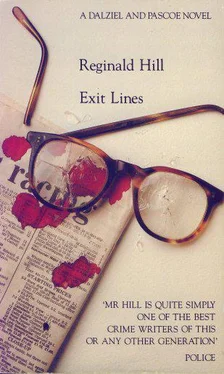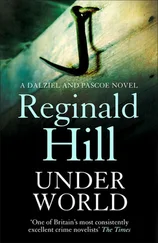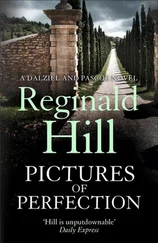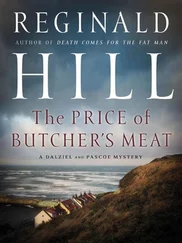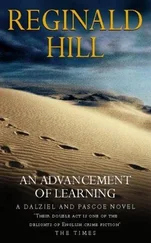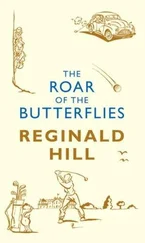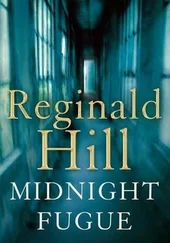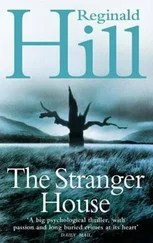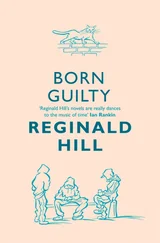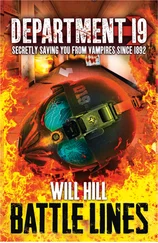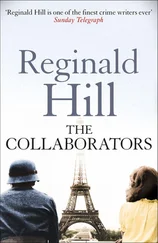Reginald Hill - Exit lines
Здесь есть возможность читать онлайн «Reginald Hill - Exit lines» — ознакомительный отрывок электронной книги совершенно бесплатно, а после прочтения отрывка купить полную версию. В некоторых случаях можно слушать аудио, скачать через торрент в формате fb2 и присутствует краткое содержание. Жанр: Полицейский детектив, на английском языке. Описание произведения, (предисловие) а так же отзывы посетителей доступны на портале библиотеки ЛибКат.
- Название:Exit lines
- Автор:
- Жанр:
- Год:неизвестен
- ISBN:нет данных
- Рейтинг книги:4 / 5. Голосов: 1
-
Избранное:Добавить в избранное
- Отзывы:
-
Ваша оценка:
- 80
- 1
- 2
- 3
- 4
- 5
Exit lines: краткое содержание, описание и аннотация
Предлагаем к чтению аннотацию, описание, краткое содержание или предисловие (зависит от того, что написал сам автор книги «Exit lines»). Если вы не нашли необходимую информацию о книге — напишите в комментариях, мы постараемся отыскать её.
Exit lines — читать онлайн ознакомительный отрывок
Ниже представлен текст книги, разбитый по страницам. Система сохранения места последней прочитанной страницы, позволяет с удобством читать онлайн бесплатно книгу «Exit lines», без необходимости каждый раз заново искать на чём Вы остановились. Поставьте закладку, и сможете в любой момент перейти на страницу, на которой закончили чтение.
Интервал:
Закладка:
Wield produced his wallet and said, 'Three pound the pair, I think it was, sir.'
'Three? Oh, that was a special discount for Inspectors whose hunches are all falling apart.'
Wield did not move; his fingers had withdrawn three pound notes from his wallet and he regarded Dalziel's hand unblinkingly.
'Christ,' said the fat man. 'I'd best take the money before he tells me what he's seeing there.'
He whisked the notes out of Wield's fingers.
'I'll leave them at the desk downstairs,' he said. 'Now I'm off. I've got things to do even if you buggers haven't!'
After he had left, Pascoe sat in thought for a while. The fat man was right. He'd interested himself in this Parrinder business without making the slightest direct contact with the case after his first casual view of the body at the hospital. Delegation is the better part of seniority, maybe; but it could be the worst part of detection.
He glanced at his watch.
Charley Frostick was due home from Germany at twelve o'clock. Pascoe had little real hope that the young soldier could help him, but he was planning to see him anyway. Give him half an hour to say hello. And that would give Pascoe plenty of time to call at Castleton Court and take a look at Tap Parrinder's background and neighbours for himself. He instructed Wield to get hold of Seymour and send him round to see Charlesworth.
'He's the only one who understands the language as far as I can see,' he said.
On his way out he bumped into George Headingley.
'How's it going, George?' he asked.
'I'm not sure,' was the reply. 'You seen the fat man this morning?'
'Briefly.'
'How was he?'
'Much the same as ever. A bit bad-tempered till he conned Wield into buying two dead pheasants. Why?'
'I've just been in with the DCC,' said Headingley. 'He's told me to wind up this accident investigation. He says he'll be taking care of things personally from now on.'
'Oh,' said Pascoe, taken aback. 'And what do you make of that?'
'I don't know. Except that junior officers aren't allowed to investigate senior officers, are they? I mean, not properly investigate. I reckon something's changed, Peter. I reckon Andy Dalziel must be in very serious trouble, and I doubt if it's just poaching!'
Mrs Jane Escott at first looked blank when Pascoe on introducing himself mentioned DC Seymour. Then her eyes lit up and she said, 'Of course. How silly of me. The young man with the red hair!'
'That's him,' said Pascoe.
'And you're his boss, are you? I hope it's not about pulling the alarm cord. It was an accident. Anyone could have done that,' she said earnestly.
'No,' said Pascoe, puzzled, but determined not to be diverted. 'It's about your neighbour, Mr Parrinder.'
'Oh yes. Poor Tap. Do they know when the funeral will be yet?' she asked, her eyes filling with tears.
'No, not yet. May I come in, Mrs Escott?'
'What am I thinking of? Please do. Would you like a cup of tea?'
'No, thanks,' said Pascoe, following her into the neat living-room which had the heating turned up to what he found was a rather uncomfortable level.
He sat down in an armchair in front of a low coffee table. Scattered across the table was a heap of loose change with perhaps a dozen piles of coins stacked alongside it, according to denomination. On the floor by the table was a pouch handbag of old soft leather.
'I'm sorry about this,' said Mrs Escott. 'I don't know how, but I always end up with so much change these days.'
'Me too,' said Pascoe. 'It wears holes in my pockets. It's the paper money I can't keep hold of.'
She opened the handbag and started to sweep the money into it.
'No, don't,' said Pascoe. 'You were counting it up. You'll have to start all over again.'
'It doesn't matter,' she said, completing the job and letting the bag drop to the floor with a dull thud. 'Now, please, Inspector. How can I help you with poor Tap?'
Pascoe took her over her story again.
'And he was watching the racing on television?' he asked.
'That's right,' she said.
'You'd watched races with Mr Parrinder, Tap, before?' Pascoe continued.
'Sometimes,' she said.
'And did he get excited when he watched? I mean, was he bothered about who won?'
'Of course he was!' she said sharply. 'There's not much point otherwise.'
'Even when he hadn't got a bet on?'
'Oh yes. He'd pick the horse he would have backed and shout at that one. Of course, it was even more exciting if he had some money on.'
'You were there from two till nearly half past three,' he said. 'So you'd see the two-ten and the two forty-five races.'
'I expect so. I didn't pay too much attention.'
'Did he have any money on those?'
'No.' She was quite definite.
'You're sure?' he pressed. 'Even though you didn't pay much attention?'
'I paid a lot of attention to Tap,' she reproved. 'The horses he was shouting for didn't even get a place, I recall, and he said what a good thing it was he hadn't been able to get out and make a bet.'
Pascoe concealed his disappointment and said, 'He always went out to make a bet, did he?'
'Oh yes.'
'Never telephoned?'
'I don't think so. He always talked about the betting shop. I've never been in one myself and he used to laugh when I told him I had this picture of a sort of old-fashioned general store with assistants wearing white coats.'
She laughed at her own silliness and Pascoe laughed with her.
'Well, thank you very much, Mrs Escott,' he said, rising.
'Have I been any help, Inspector?' she asked earnestly.
'Yes, very much,' he said, with all the false sincerity of a man who has just seen the last remnants of a promising theory knocked down.
'I'm so glad. Sometimes I forget things. It's just old age, Mr Pascoe,' she said sorrowfully. 'But it can be so annoying.'
'Your memory seems fine to me. Just one last test. You can't remember the names of the horses he was shouting for on Friday, can you?'
His mind was toying with the absurd idea that Parrinder might have wished to keep his real selections secret from Mrs Escott and picked some rank outsider for his pretended support, though why he might have wanted to do this was as yet beyond even hypothesis. He had brought Parrinder's paper with him and he took it out now, ready to prompt Mrs Escott if necessary by reading the runners.
But it wasn't necessary. Her eyes lit up and she said triumphantly, 'Yes, I can. The first one was a horse called Willie Wagtail. It was such a funny name it stuck in my mind. In the second race it was Glaramara.''
'Well done,' said Pascoe, looking down the list to check the betting forecasts.
He looked again. He went through the card for the whole afternoon. There were no such horses running that day.
But as his eye ranged over the racing page, it did pick up the name of Glaramara. He still had to search to locate it, but there it was, in the small print of the also-rans after the result of the 2.40 at Wincanton on Thursday afternoon. Willie Wagtail was an also-ran in the previous race on the same day.
He looked at the old lady's smiling, happy face ‘and said gently, 'Yes, that's very good, Mrs Escott. Thank you. By the way, you don't happen to remember what the weather was like that afternoon when you watched television with Mr Parrinder, do you?'
'Why, yes,' she said, looking puzzled. 'Friday, you mean? It was bright but blowy. I remember saying to Tap that the sun looked warm enough from inside but there'd be precious little warmth in it if you went out. But he did go out, didn't he? And there was no need, no need at all. Especially not in the dark. It's so frightening these days if you’re old, Mr Pascoe. All these muggings you hear about. I try never to be out after dark. Why did Tap go, Mr Pascoe? Why did he go?'
Читать дальшеИнтервал:
Закладка:
Похожие книги на «Exit lines»
Представляем Вашему вниманию похожие книги на «Exit lines» списком для выбора. Мы отобрали схожую по названию и смыслу литературу в надежде предоставить читателям больше вариантов отыскать новые, интересные, ещё непрочитанные произведения.
Обсуждение, отзывы о книге «Exit lines» и просто собственные мнения читателей. Оставьте ваши комментарии, напишите, что Вы думаете о произведении, его смысле или главных героях. Укажите что конкретно понравилось, а что нет, и почему Вы так считаете.
